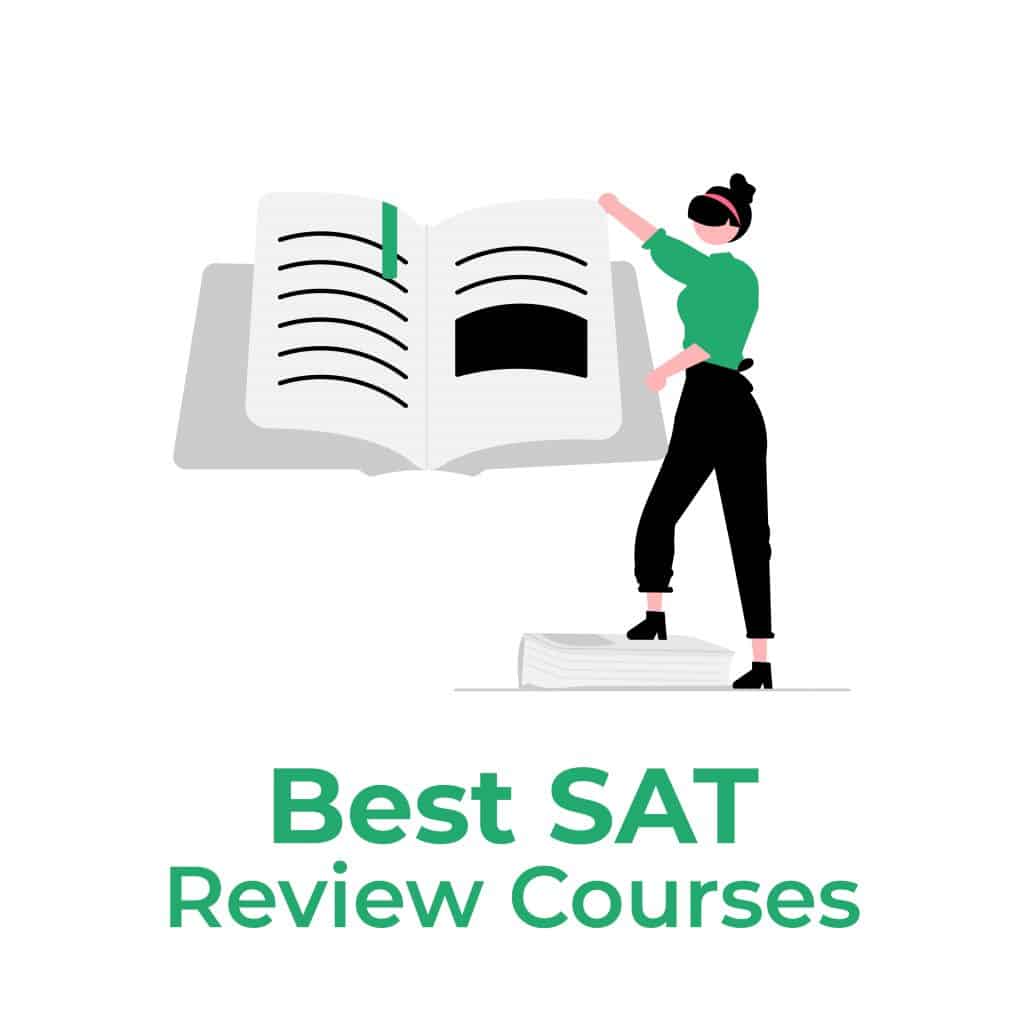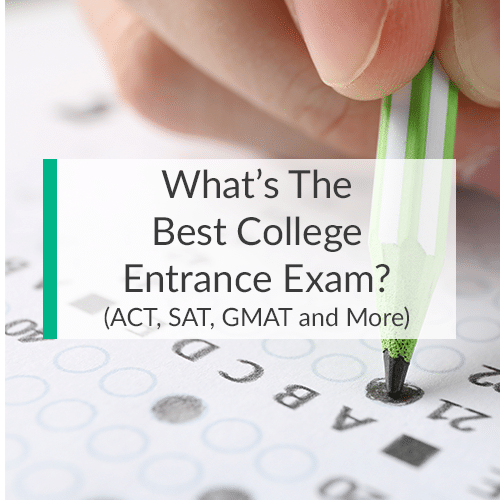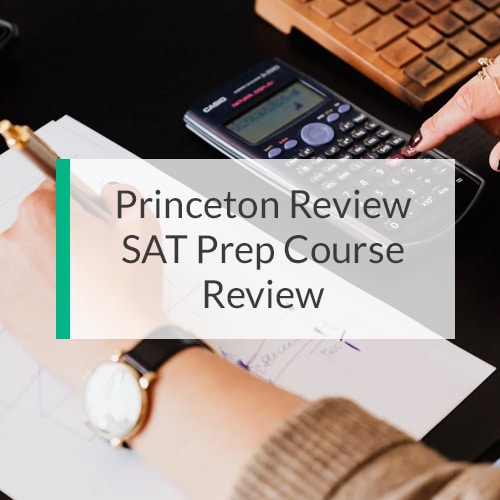It can be hard to differentiate between Kaplan vs. Princeton Review when preparing for the SAT. Many of these online courses use the same test prep materials but in subtly different ways. As a result, it can be tough to figure out which one is the best fit for you.
Luckily for you, I’ve gone ahead and found out which course is better! Keep reading to see who wins in the battle between Kaplan SAT Classes and The Princeton Review.
It’s important that we discuss the similarities and differences between the two. Some of them are stronger in different areas, but only one of them comes out on top. So without further ado, check out how Kaplan’s Unlimited SAT Package compares to the Princeton Review’s SAT 1400+ course.
SAT Prep Classes – Price
Right out the gate, the most important thing for most students is how much a test prep course costs. Ultimately, both of these courses are fairly expensive; they are the highest quality options from each company.
For the sake of comparison, these serve as complete catalogs of all their prep books and study materials and features, making for an excellent point of comparison.
Between these two courses, the Princeton Review has a slightly better price— $1,599 before any discounts. By contrast, Kaplan’s Unlimited Prep With Coaching comes to a slightly steeper $1999 price for entry. This may not seem like a huge difference, but a couple hundred dollars saved isn’t small potatoes!
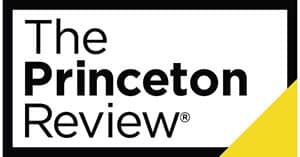
Winner:
Private Tutoring / Video Lessons
A major component of both courses is how they handle their live content. Each offers one on one coaching in addition to classroom experiences, but they go about it in slightly different ways.
The Princeton Review offers 24/7 coaching support for their students. At any time of day, students can contact a tutor on demand and ask them to explain course concepts and how they’re applied to SAT questions. On top of that, they offer over 36 hours of either in-person or live online classroom content. All in all, The Princeton Review’s course content is extremely competitive thanks to these two combined aspects of live instruction.
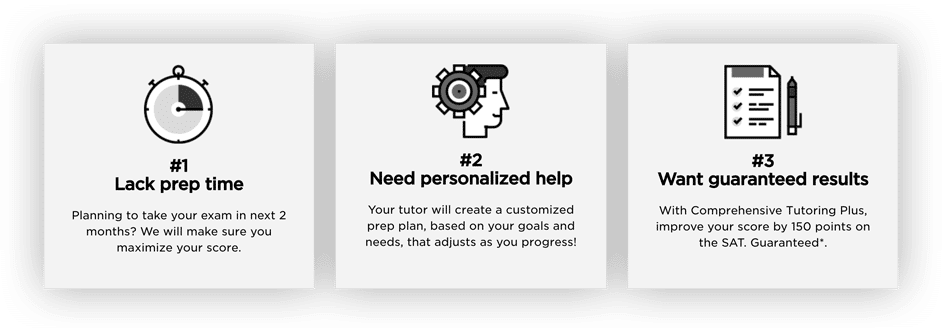
By contrast, Kaplan has a different approach to their live instruction. They also offer one on one coaching, but it is limited to only six total hours overall. Plus, you’ll only be able to access this support through their Unlimited Prep with Coaching course. This is extremely disappointing in light of Princeton Review’s dedication to 24/7 support— even with lower-priced packages.
However, there are positive aspects to Kaplan’s tutoring worth mentioning. Each student is personally matched with a tutor and can meet them in person or via video calls. This is a more personal aspect than the Princeton Review offers.
Between the two courses, it seems quite obvious that the Princeton Review comes out on top here. While Kaplan has some high points, the limited time and additional price make it much less approachable than the competition.

Winner:
SAT Prep Course Instructors
The most important part of any classroom is the teacher; essentially, how good your instructors are will make or break your results on test day. So how do these two different companies approach such an important aspect of learning?
The Princeton Review selects instructors based off of extremely high standards. Each teacher must be a top percentile scorer to even be considered for the position. On top of that, the people chosen for the job end up being highly qualified professionals in their respective fields. Thanks to this high standard for quality, Princeton Review courses are extremely well-taught and effective.

Don’t believe me? You can see the Princeton Review’s SAT instructors — and their qualifications — for yourself right here.
Kaplan has similar standards of quality when it comes to their instructors. Each teacher has years of experience in their fields and are highly qualified to teach you about how to pass the SAT test. On top of that, each teacher is selected for you based off of your personal learning style, so you’ll never have a bad fit with any Kaplan course. Hence, each course quickly and efficiently conveys what each student needs to know for a good SAT score.

Ultimately, both courses are even enough in this regard that I can’t really refer to either as the winner here. Any student of either course will be happy with the quality of their instructors!
Winner: Tie
PSAT Prep
Many people take the PSAT in addition to a PSAT prep course in order to prepare for the SAT. While it’s not as important as the real thing, the PSAT is a good gauge for how well you’re doing in your studies. Naturally, some courses are available through these two companies that will help you prepare for that as well.

The Princeton Review’s course comes included with a full set of PSAT review materials. These are designed to increase your PSAT score, which will in turn increase your performance on the SAT when the time comes to take that. No test is considered beneath the Princeton Review; that dedication is reflected across all of their courses.
By contrast, Kaplan doesn’t include any PSAT prep with their SAT study materials. This is highly disappointing when compared to The Princeton Review’s readiness and depth of material. Even though it isn’t as important as the real thing, the PSAT is still a valuable stepping stone in the learning process for many students. Consequently, the absence of any materials for said test is a massive missed opportunity for Kaplan’s study courses.
In light of this information, the Princeton Review once again comes out on top in this category. Their dedication to your studies shows through their willingness to help you prepare for a test that other companies dismiss as “unimportant.”

Winner:
Practice Questions and Tests
Full-length practice tests are a cornerstone of any good review course. How well they are used is a major component in how well you’ll do on an exam. Both of these courses offer similar testing content, but with a few key differences.

The Princeton Review has a very heavy focus on practice questions and tests due to their importance in learning. In order to assist their students, 24 practice tests are offered over the course’s access period. Additionally, 4 of these tests are proctored so as to emulate actual SAT conditions.
In addition to those are 20 additional tests that you take on your own time. These allow you to familiarize yourself with the test format before being put on a strict time limit. Finally, the Princeton Review includes eight single section practice exams for students who are focusing on certain areas in their learning.
On the other hand, Kaplan takes a much more broad approach to practice tests. Their course focuses heavily on an initial diagnostic test intended to gauge in what areas you need the most help. Afterwards, you’re given a study plan based on your results. During the course you will take a few other tests, but not as many as The Princeton Review’s.
After examining the two side-by-side, The Princeton Review again seems like the better option. They have much more content to offer and you’ll always have the opportunity to gauge your progress with a mock exam. Plus, you can focus on individual areas instead of taking the whole thing every time!

Winner:
Access Period
It’s important to set up a good timeline for the SAT. Studying can take several months — even as long as a year if you’re dedicated — so it’s important to have a lot of wiggle room when preparing for the SAT.
The Princeton Review’s course has a minimum access period of one year. I say ‘minimum’ because each course has a start and end date set in stone, but you actually gain access as soon as you pay for a course. That means that if you buy a course a month ahead of time, you’ll be able to study during that extra month as well. This makes the Princeton Review a flexible option for any student who’s setting up a study schedule.
Kaplan on the other hand only has an access period of six months. Ultimately, this is because it’s intended to be a ‘compact course’ and is designed to be completed in just a few months. That makes this a solid option for anyone short on time for studying, but a little less appealing to students who want to start getting ready as soon as possible.
It’s tough to choose between these two because they both appeal to different kinds of students. If you’re looking to study long term, go with the Princeton Review. Otherwise check out Kaplan if you plan to cram.
Winner: Depends on your needs
Money-Back Guarantee
Any course worth their salt has a passing guarantee or a money-back guarantee. It shows that the company has faith in their teaching and is willing to show it. Luckily, both of these courses have strong guarantees!
The Princeton Review has a score guarantee in place for their course. If you complete the course and still score below a 1400 on the exam, you will receive a full refund. However, bear in mind that you must complete all course materials to be eligible for the guarantee.
Kaplan has essentially the same guarantee; if you don’t score well on your exam, you will receive either a full refund or the choice to take the course again for free. This is also comes with similar conditions to The Princeton Review’s.
Winner: Tie
Final Recommendation
Between the two courses, I would have to recommend The Princeton Review. Essentially, they simply have more to offer between their materials, access period, and live content. Plus they provide extra PSAT content that their competitors sadly skipped out on.



